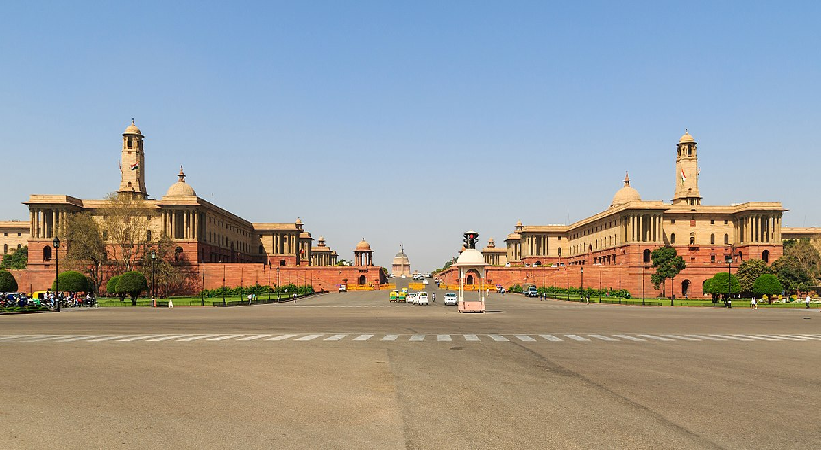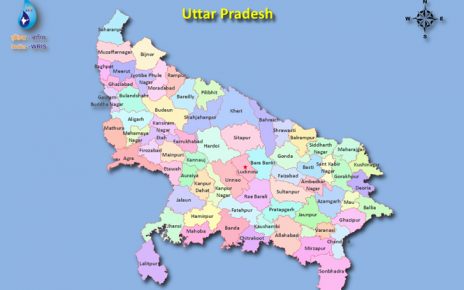Counterview Desk
 A European Commission (EU)-funded report, “Campaign against Torture in India: Prevention, Accountability and Rehabilitation”, has regretted that, despite a sharp rise in deaths caused by torture, the Government of India has failed to frame a law on custodial torture and inhuman treatment, even though India is a signatory to the United Nations’ convention on torture.
A European Commission (EU)-funded report, “Campaign against Torture in India: Prevention, Accountability and Rehabilitation”, has regretted that, despite a sharp rise in deaths caused by torture, the Government of India has failed to frame a law on custodial torture and inhuman treatment, even though India is a signatory to the United Nations’ convention on torture.
The report, titled “India: Annual Report on Torture 2018”, published by the Asian Centre for Human Rights (ACHR), and is part of an EU programme, European Instrument for Human Rights and Democracy, which aims “to promote and support human rights and democracy worldwide”, comments, “As India refuses to criminalise torture, the increasing incidents of torture are no surprise”.
Excerpts:
Deaths in police custody which mainly occur as a result of torture are rising in India. There is no letup in the number of custodial deaths in India. The National Human Rights Commission (NHRC) received reports of 147 deaths in police custody during 2018. About a decade ago i.e. during 2009-2010, the NHRC had received reports of 124 deaths in police custody, indicating 19% increase of deaths in police custody. The NHRC further registered 525 cases of torture in police custody during 2018.
These figures do not reflect the extent and actual incidents of custodial death and torture in the country. The pattern of custodial deaths remains similar. Police claim that majority of victims of custodial deaths in police custody during 2018 died after suddenly developing sudden medical complications soon after being taken into police custody. Police also claimed the detainees suffered injuries while trying to escape and later succumbed to the injuries.
In some cases, police blamed beatings of the deceased by mob/public prior to their arrest/detention. The fact remains many are tortured to death for the failure to pay bribe and in these cases, the victims are tortured in front of the relatives and falsely implicated in various alleged crimes. Victims were often tortured to extract confessions. Police often cite suicide as the cause of death in their custody.
During 2018, police claimed that many victims committed suicide by consuming poison, banging their heads till death, hanging with piece of cloths, wire, belt, rope, etc. Police even made bizarre claims that Sitrarasu, a junior assistant in the education department and a resident of Chunambedu of Tamil Nadu had hanged himself — using his innerwear!
In most cases, the family members of the deceased rejected the claims of suicide and alleged torture to be the cause of death. In some cases, marks of torture were established in post mortem reports. Most victims purportedly committed suicide within 24 hours of their detention, that is, before the production before the magistrate.
The most serious issue is that victims are tortured to death even after production before the Judicial Magistrate. Dalits and indigenous peoples remain extremely vulnerable to torture and during 2018, many died in police custody after being arrested in cases related to alleged theft or robbery.
On February 8, 2018, Abinash Munda, a tribal youth, was allegedly tortured to death at the Ainthapalli Police Station in Sambalpur district of Odisha after being arrested in a theft case. The police claimed that Munda committed suicide by hanging himself with a bed sheet in the police lock-up but family members claimed that he was tortured to death in the Police Station. His dead body was recovered from an abandoned house near to the police station.
Custodial torture of women including rape is reported regularly in India despite various judicial pronouncements for their safety. Majority of the victims of custodial deaths among women belonged to weaker section of the society such as Dalits, tribals and the poor who mostly worked as domestic help or did petty jobs to earn a livelihood.
On August 10, 2018, constable Minesh Bhunekar posted with the crime branch was booked for alleged rape and torture of an undertrial woman prisoner at Santrampur Police Station in Mahisagar district of Gujarat. The victim was allegedly tortured and raped after being taken into police custody on the afternoon of May 29, 2018.
She alleged that she was given electric shocks, was beaten and her hands were pierced with pins. She was allegedly raped by constable Bhunekar while two others kept vigil at the door. A special investigation team was set up to investigate the case. There is no improvement of torture in prisons and torturous prison conditions.
The NHRC record a total of 1,819 deaths in judicial custody. Horrible prison conditions by themselves constitute inhuman and degrading treatment and as per the latest data available about 149 jails had an overcrowding rate of from 200% to 1166.7% as on December 31, 2015.
In large majority of custodial deaths the prison officials contended that the cause of deaths were sudden health or medical complications such as acute pain in the body, heart attack, serious pain in chest, sudden deterioration of health condition, stomach pain, uneasiness, incessant coughing, asthma, seizure and fainting, falling unconscious etc.
Suicide due to alleged depression is also often cited by prison officials. In a bizarre case, the jail officials claimed that Guddu alias Bhanu Pratap, aged 30 years, an undertrial prisoner, hanged himself with his gamcha (towel) inside the toilet of at barrack No. 7 in Raebareli district Jail in Uttar Pradesh on October 14, 2018, but the media reported that the deceased had lost his right hand in an accident three years ago.
The non-implementation of the Juvenile Justice (Care and Protection of Children) Act means that children are often illegally detained at Police Stations and prisons, and subjected to torture. A number of children were allegedly tortured to death. A large majority of victims of torture among juveniles came from the weaker sections of the society viz. Dalits, tribals, religious minorities, poor etc.
On April 13, 2019, a 17-year-old juvenile died at JJ Hospital in Mumbai in the custody of Government Railway Police (GRP), Wadala, after being apprehended by the Railway Protection Force (RPF) on April 3, on suspicion of theft and handed over to the GRP the next day. The armed forces deployed in the conflict situations and border areas also resorted to torture. The Border Security Forces (BSF) personnel were accused of kicking on testicles of the male victims including juveniles as part of torture.
On the night of November 21, 2018, at around 2 AM, Sarif Sekh, a 10th standard student of Fatullapur High School, was reportedly caught by the BSF when he went to a nearby open field to defecate at Fatullapur under Raghunathgunj Police Station in Murshidabad district of West Bengal.
Despite identifying himself as a student, he was allegedly tortured by Subedar Sujoy Singh Rana, Sub Inspector Anil Kumar, and Assistant Sub Inspector CR Tarki, posted at Bhagirathi Patlatola Border Out Post (BOP) of 180th Battalion, BSF, ‘F‘ Company. Apart from hitting with stick and rifle butts, the BSF personnel allegedly kicked on the victim’s testicles, due to which he became unconscious.
Non-state actors
On May 27, 2018, Vanjami Sukda, aged 45 years, was reportedly kidnapped and killed by the Maoists after slitting his throat on suspicion of being a police informer near Punpalli village under Dornapal Police Station in Sukma district of Chhattisgarh.
In Jammu and Kashmir, on March 8, 2018, a Class XII student identified as Omais Rashid Bhat, a resident of Qaimoh in South Kashmir’s Kulgam district, was allegedly abducted by militants and tortured on the suspicion of being an informer of the security forces. After battling for his life for 14 days, he succumbed to the injuries in a hospital in Srinagar on March 22, 2018.
Other non-State actors continued to perpetrate torture. The Dalits continued to face torture and other inhuman and degrading treatment at the hands of the upper castes. The incidents of caste atrocities continued to remain high with 39,408 reported cases during 2013; 40,401 reported cases during 2014; 38,670 reported cases during 2015; and 40,801 cases during 2016.
During 2018 the Dailts were killed, attacked, tortured, and subjected to other forms of cruel, inhuman or degrading treatment or punishment by the members of the upper castes, among others, for riding a horse or owning a horse; sitting crossed-legs; fetching water from common sources such as well; swimming/bathing in the swimming pools; participation or watching of Hindu religious festivals; sporting moustaches; wearing jeans, shirts, gold chain or shoes; pasting stickers of symbols like Shivaji on their motorcycles; riding a motorcycle; having love affairs with upper caste girls/women; sitting on a chair at the village panchayat office; seeking information from their upper caste employers; refusal to serve/work for upper castes; objecting to casteist remarks/slurs; or on mere suspicion of theft.
On October 18, 2018, a Dalit man identified as Asaram Meghwal, aged 22 years, was beaten to death by members of upper caste for an alleged love affair with an upper caste girl at Satra village in Churu district in Rajasthan. The police arrested two accused identified as Shrawan and Dinesh Jangid of Satra village.
The Courts, the National Human Rights Commission (NHRC) and the State Human Rights Commissions (SHRCs) have intervened in a number of cases to provide justice and reparation to the victims, or their family members. The NHRC alone issued orders for compensation of Rs 8,52,95,000 in cases of torture and custodial deaths.
Absence of anti-torture law
However, these interventions did not have necessary and desired impact to act as deterrent to torture. Impunity and absence of national anti-torture law perpetuates torture and other cruel, inhuman or degrading treatment or punishment. Government officials or members of the armed forces continued to enjoy impunity under Section 197 of the Code of Criminal Procedure (CrPC), Section 6 of the Armed Forces (Special Powers) Act, 1958 and its analogous provision, Section 7 of the Armed Forces (Jammu and Kashmir) Special Powers Act, 1990.
As a result, the Central Bureau of Investigation (CBI) despite orders from the Supreme Court has not been able to prosecute accused members of the armed forces because of the refusal by the State government of Manipur to provide sanction for registration of FIRs in cases of fake encounter killings in Manipur.
On December 18, 2018, the CBI wrote to the Chief Secretary, Government of Manipur, stating that despite repeated requests, sanction of prosecution in seven cases of extrajudicial executions by the security forces in Manipur had not been received from the State government of Manipur although charge sheets had been filed in the concerned trial Courts by the CBI.
Aggrieved by false assurance given to the Supreme Court, former Union Law Minister of India Dr Ashwini Kumar once again moved a Miscellaneous Application to W.P.(C) NO.738/2016 before the Supreme Court seeking a direction to the Centre to frame a law on custodial torture and inhuman treatment, as India was a signatory to the United Nations’ convention on torture. The Supreme Court has reserved its judgement.
As India refuses to criminalise torture, the increasing incidents of torture are no surprise.




